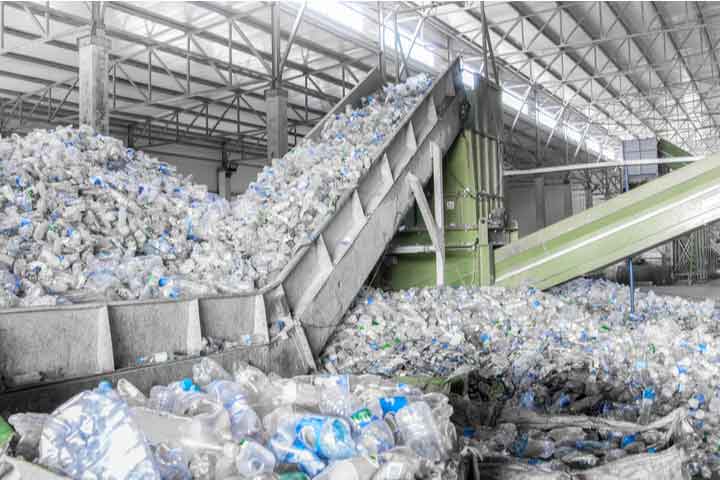
Introduction :
In an era marked by rapid technological advancements and a growing emphasis on sustainability, the future of waste management is poised for significant transformation. Companies like Mapwaste, a pioneering commercial waste disposal business in Leicester, are at the forefront of this revolution, steering the sector towards more efficient, sustainable, and innovative practices. This blog post explores the emerging trends and innovations shaping the future of waste management and how Mapwaste is leading the charge in implementing these forward-thinking solutions.
1: Embracing a Circular Economy:
The shift from a traditional, linear economic model (make, use, dispose) to a circular one (reduce, reuse, recycle) is gaining momentum. The circular economy aims to keep resources in use for as long as possible, extract the maximum value from them while in use, and recover and regenerate products and materials at the end of their service life. Mapwaste is at the vanguard of this movement, adopting practices that not only reduce waste but also transform it into new, valuable resources, thereby promoting sustainability and reducing the environmental impact.
2. Advanced Recycling Technologies:
Recycling technologies are evolving rapidly, paving the way for the transformation of various types of waste into reusable materials. Innovations such as enzyme-based recycling for plastics and advanced sorting technologies are making recycling more efficient and less energy-intensive. Mapwaste is investing in these cutting-edge technologies to enhance its recycling capabilities, ensuring that waste materials are not just disposed of but given a new lease on life.
3. Waste-to-Energy Solutions:
The conversion of waste materials into usable forms of energy, such as electricity, heat, or fuel, is a trend that’s gaining traction. Waste-to-energy technologies, including anaerobic digestion, incineration, and gasification, offer a twofold benefit: reducing the volume of waste and generating energy. Mapwaste recognizes the potential of these technologies and is exploring partnerships and investments to incorporate waste-to-energy solutions into its service offerings, aligning with the global shift towards renewable energy sources.

4. Smart Waste Management Systems:
The conversion of waste materials into usable forms of energy, such as electricity, heat, or fuel, is a trend that’s gaining traction. Waste-to-energy technologies, including anaerobic digestion, incineration, and gasification, offer a twofold benefit: reducing the volume of waste and generating energy. Mapwaste recognizes the potential of these technologies and is exploring partnerships and investments to incorporate waste-to-energy solutions into its service offerings, aligning with the global shift towards renewable energy sources.
5. Focus on Sustainable Materials Management:
There’s a growing recognition of the importance of not just managing waste but also managing materials throughout their lifecycle. This involves designing products for longevity, repairability, and recyclability. Mapwaste is collaborating with businesses to rethink product design and packaging, advocating for materials that are easier to recycle and have a lower environmental footprint. This approach not only reduces waste but also fosters a more sustainable, eco-friendly business ecosystem.
6. Policy and Regulation:
Government policies and regulations play a crucial role in shaping the waste management sector. Stricter waste management regulations, incentives for sustainable practices, and penalties for non-compliance are driving businesses to adopt greener waste management solutions. Mapwaste is not just staying abreast of these regulatory changes but is also actively involved in policy advocacy, promoting regulations that encourage innovation and sustainability in waste management.
7. Education and Awareness:
Last but not least, educating businesses and the public about the importance of waste management and sustainability is crucial. Mapwaste is investing in community engagement and education programs to raise awareness about waste reduction, proper disposal practices, and recycling. By empowering individuals and businesses with knowledge, Mapwaste is fostering a more environmentally conscious community and driving collective action towards a sustainable future.
Conclusion:
The impact of single-use plastics on our oceans and marine life is a global crisis that demands immediate attention and action. With its diverse and dynamic business community, Leicester has the power to be a leader in sustainability. By adopting eco-friendly practices, reducing plastic consumption, and fostering a culture of environmental responsibility, Leicester-based businesses can contribute significantly to preserving the health of our oceans and the life they sustain. It’s time for businesses in Leicester to plunge into a sustainable future, leaving a positive legacy for generations to come.
Note: Map Waste is committed to environmental sustainability and responsible waste management. Visit www.mapwaste.co.uk to learn more about our services and how we can support your community cleanup initiatives.
Contact Us for Responsible Commercial Waste Management
If your business is based in Leicester Loughborough or Charnwood and needs advice on how to manage your Commercial Waste, please get in touch for a no-obligation chat HERE
Related: How you can recycle old electrical to help the environment
